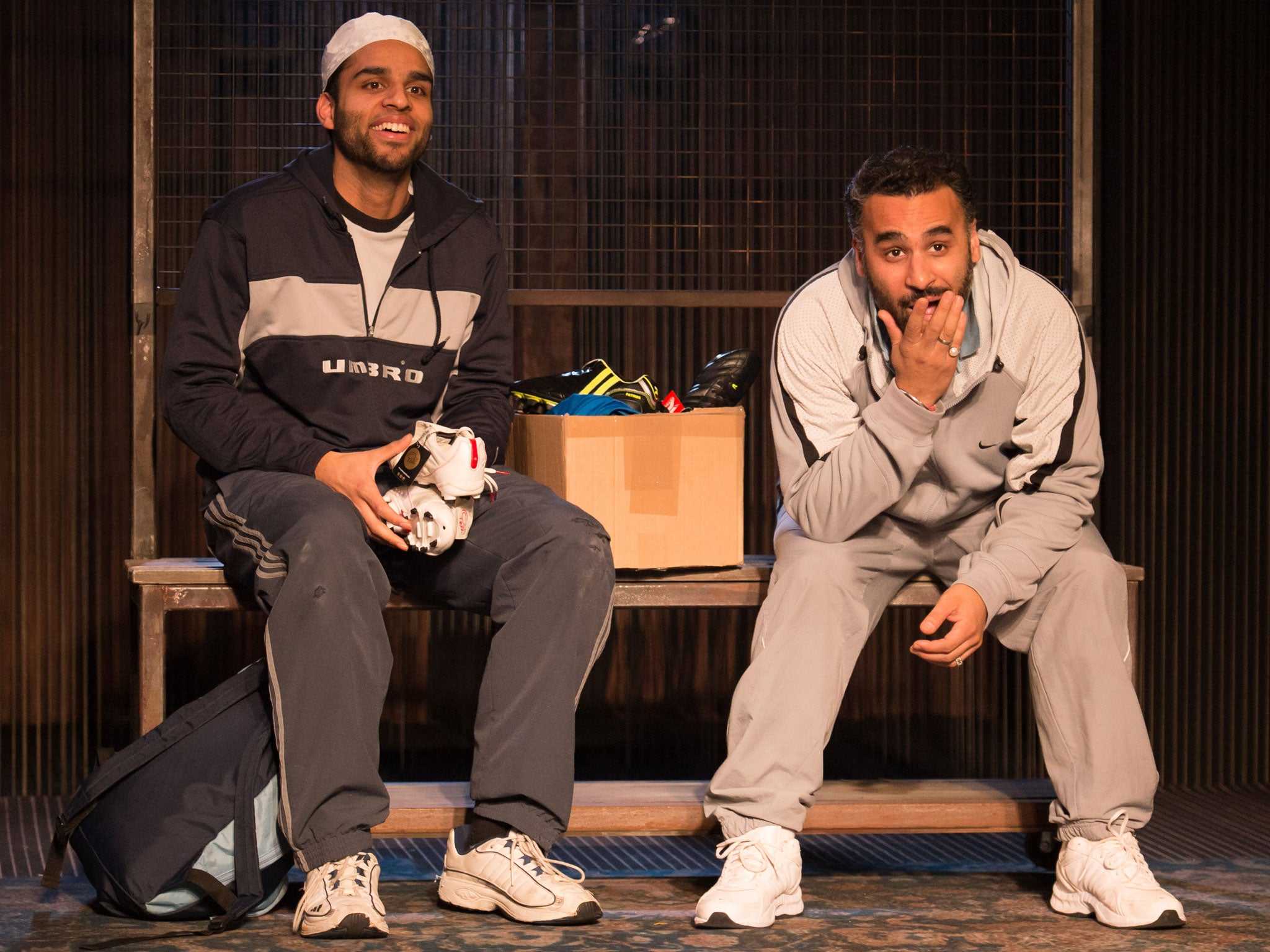
In this powerful and haunting new play, the Indian writer Abhishek Majumdar explores the human cost of the conflict in Kashmir through the trials of two young Muslim siblings and a Srinagar psychiatrist. It's a piece that shifts – with spell-binding suppleness in Richard Twyman's excellent traverse-stage production – between fact and fantasy, the real and the imagined.
At the start, through the gauze of their mosquito net, we watch the children being treated by their father to a bedtime story involving the legendary Amir Hamza, sorcerers fighting sorcerers in wars that are all illusion, and the eponymous Djinns who are spirits "of pure passion and no reason" with the ability to assume human form.
In an emblematic scene shift, this cocoon of family peace and safety is torn down by Indian soldiers and, abruptly, we are several years on and in a changing room.
Danny Ashok's lovely, subtle Bilal, a talented teenage football player, is sweating on a trial that could sweep him to Brazil, freedom, and proper medical treatment for his sister Ashrafi. Portrayed with affectingly quiet intensity by Aysha Kala, the girl was traumatised and emotionally arrested by the violent death of their father when she was ten. But Bilal's team mates aren't impressed by his distancing himself from the political protests that are mounting in the tense run-up to Eid and peace talks with India, as an incensed community prepares to bury the latest child to be shot.
Performed on Tom Scutt's excellent set, which is like a giant loom with dangling threads that represent prison bars, the play's great achievement is to show how everyone is intimately woven into the horrors of the conflict and to find non-naturalistic ways of dramatising division and difficult in-between states of mind and heart.
The conscience of the piece is Dr Baig (an impassioned Vincent Ebrahim), Ashrafi's psychiatrist. He fervently believes in reconciliation and has to tussle with the djinn or ghost of his son, who died fighting for the militant mujahideen (he was burned, in fact, by his own men). These scenes, and others, seem to take place in a disturbing twilight zone between worlds. But then Majumdar has written a piece that finds no problem in accommodating poetic mysteries, pointed symbolism (such as the moment when football boots morph into protesters' stones), Islamic story-telling and the black, realistic comedy of, say, the two bickering Indian soldiers who have drawn the short straw of having to guard a martyrs' graveyard. In more ways than one, a transporting experience.
To 9 November; 0207 565 5000
Join our commenting forum
Join thought-provoking conversations, follow other Independent readers and see their replies
Comments